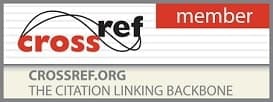Vol. 5, Issue 1, Part A (2023)
Knowledge, attitude, and practice of self-medication among residents in Yenagoa metropolis
Zige Gloria Tiekuro, Eniojukan and F Joshua Owonaro A Peter
Self-medication is the use of medications, herbs, or home remedies with the intent of having a therapeutic effect without a prescription. It is the selection and use of medicines by individuals to treat self-recognized illnesses or symptoms without the consultation of healthcare professionals. Furthermore, self-medication forms a vital part of self-care. This study investigated the knowledge, attitude, and practice of self-medication in the Yenagoa metropolis. A descriptive cross-sectional survey was used to assess the knowledge, attitudes, and practices of self-medication among 1826 residents that were randomly selected in the Yenagoa metropolis. A structured questionnaire was employed to collect the field data, the data was then analyzed using IBM SPSS Version 23 was used. Results showed that the knowledge level of respondents on the subject of ‘Self-medication’ was high and most residents have a positive attitude towards self-medication. Over half of the sample population, 52.2% get drugs for self-medication from chemists, and 44.4% of respondents source their drugs for self-medication from pharmacies. Regarding reasons for self-medication, 25.6% of respondents believe self-medication saves time, 14.1% said they tend to adopt self-medication because of their perceived distance from health facilities, 15.9% argued that clinical fees are high, 9.9% say doctors are too busy with many things while 13.6% respondents are found to be recycling old prescriptions for similar symptoms. Half of the respondents reported (50.7%) regularly sharing their prescriptions with friends and family as a source of self-medication. The results in Table 3 show that the grand mean of 3.58 is above the accepted mean cut-off point of 3.00, revealing that respondents are knowledgeable about the benefits of self-medication. The result showed that the perceived benefits of self-medication by respondents are primarily for economic reasons having the highest mean score of 4.16. Respondents reported time-saving and treatment of minor ailments as a reason for self-medication with a mean score of 3.89.
It was also observed that most respondents engaged in diverse forms of practice of self-medication such as sharing of prescriptions from friends, families, and peer groups. This study was able to uncover that people who are actually self-medicated are not totally ignorant of the ills of this practice but just not enough knowledge to enable them to take a strong stance against self-medicating. The residents of this metropolis have quite some bad attitudes towards proper health protocols when it comes to drug administration and consumption although this is linked to several factors. This study's findings suggest that a lot needed to be done to prevent self-medication in Yenagoa Bayelsa State. Proper counseling of respondents should be done using methods that are better understood by patients.
Pages: 06-11 | 1582 Views 427 Downloads
















